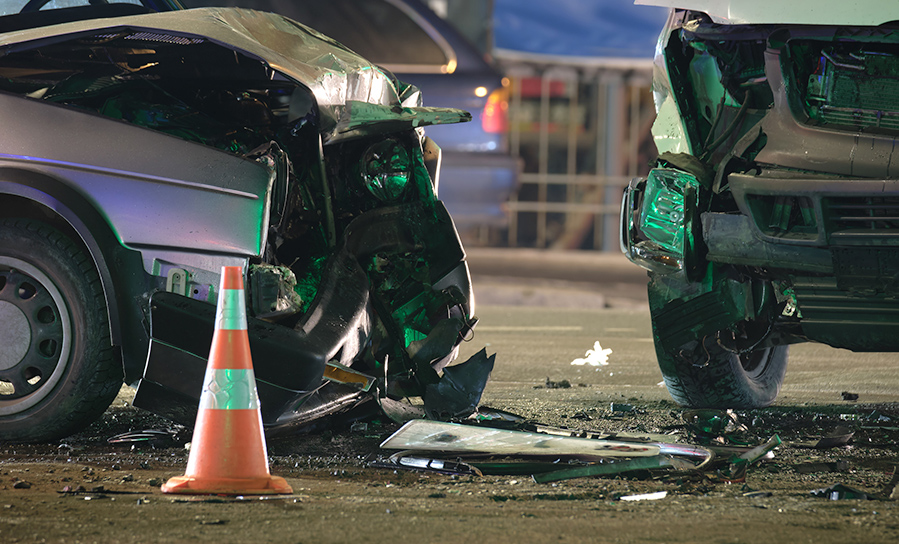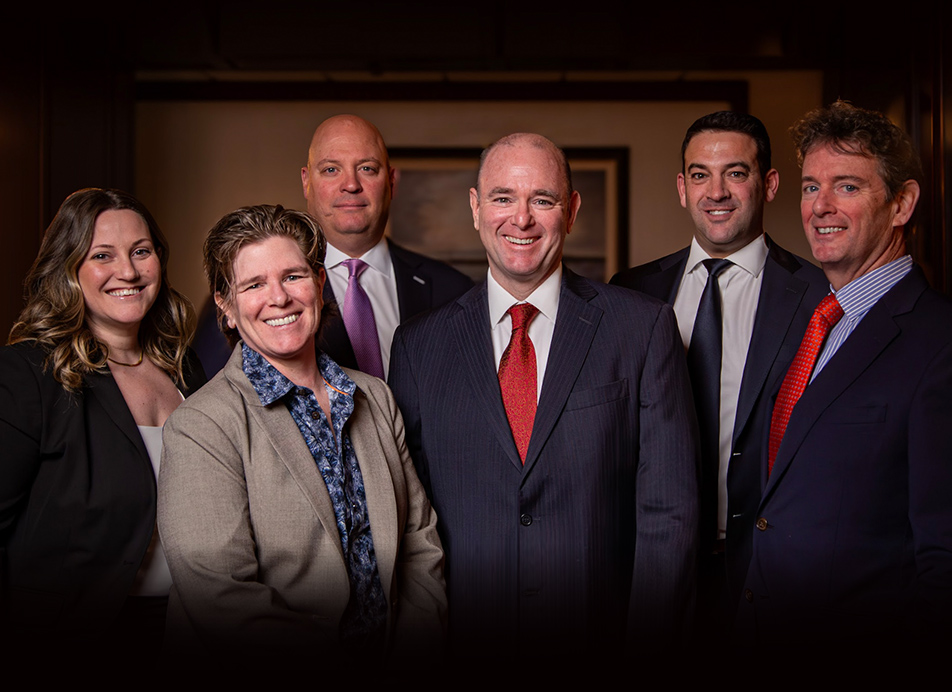Table of Contents
- 1 Distracted Driving Car Accidents
- 2 Let our skilled injury lawyers help.
- 3 The Dangers of Distracted Driving
- 4 What are the common causes of distracted driving accidents?
- 5 How many accidents are caused by distracted driving each year?
- 6 How does texting while driving lead to accidents?
- 7 Where can I report someone who is engaging in distracted driving?
- 8 Legal Consequences of Distracted Driving
- 9 Do I Need a Lawyer After a Distracted Driving Accident?
- 10 Support for Victims of Distracted Driving Accidents
Distracted Driving Car Accidents
There are many distractions that a driver must face when they are behind the wheel and driving a car. Evidence has shown that distracted driving is still a very serious problem, that can cause problems with the law, stress, spent energy and time, as well as fatalities too.
If you are one of the many people who want to avoid any sort of hazard related to distracted driving, you should learn all the information that you can and give yourself the right sort of education to avoid distracted driving. This will help you avoid court, mental anguish, and the consequences that come with this mistake.
The Dangers of Distracted Driving
The dangers that come with distracted driving are many and touch upon multiple different ways that you can cause accidents if you aren’t paying proper attention while managing your car. It goes beyond just having your eyes on the road.
When your attention is divided between driving and any other activity, such as texting or finding music to listen to, your ability to respond as fast as you need to to any changes in traffic is impaired. This will cause delayed reflexes with braking or moving, all of which increase the probability of car accidents.
Multitasking while driving may affect your decision-making ability, which also has serious consequences. Your brain is attempting to absorb so many streams of information at the same time, which makes it more difficult to size up dangers and make split-second judgments required for safe driving.
Taking your eyes off the road for even a few seconds can lead to unintentional drifting into other lanes, going off the road, or failing to detect stopped or delayed cars ahead of you. This can result in crashes and a collision on the road because of loss of control.
Distracted driving is unlawful in many locations and could result in fines, a suspension of your license, the loss of driving rights, or even jail time, based on the severity and repercussions of your case.
It is important to remember that the risk of distracted driving doesn’t just harm the driver. Instead, it will also have disastrous implications for passengers, pedestrians, and other people. Evidence in many court cases has shown that innocent lives are lost or changed forever because of someone else’s distractions.
Types of Distractions
Distractions when driving are many and can be broken down into a few different categories: visual, manual, and cognitive. Visual distractions pop up when drivers take their eyes off the road to focus on items or activities inside or outside the car. This might be looking at a cell phone, changing the radio or GPS, or simply soaking up the surroundings they are driving through.
Meanwhile, manual distractions are tasks that require drivers to remove their hands from the steering wheel. Regular examples of this include texting or typing on a phone, eating or drinking, reaching for something in the car, and other activities such as putting on makeup or brushing hair.
Finally, cognitive distractions make themselves known when drivers’ thoughts wander away from simply driving. This might happen when talking, daydreaming, reflecting on personal matters, or just listening to music or podcasts.
Despite keeping their eyes on the road and their hands on the wheel, distracted drivers may fail to pay attention to critical visual and auditory cues, which results in delayed reflexes and bad decisions.
These distractions are not mutually exclusive either. Texting, for example, causes visual, physical, and cognitive distractions all at the same time, making it one of the most dangerous things to do when driving.
Impact on Drivers’ Reaction Time
Distractions have a substantial influence on a driver’s reaction time, which is the time it takes to perceive a hazard and respond appropriately. When a motorist is distracted, their ability to respond quickly to unexpected situations decreases.
Visual distractions divert the driver’s attention away from the road, delaying their awareness of potential hazards ahead. Just glancing at a phone screen or changing the music playing, for example, distracts the driver’s attention away from traffic, which will increase the time it takes to respond.
Manual distractions force the driver to take their hands off the steering wheel, which reduces their ability to respond rapidly. Texting, eating, and reaching for things inside the car not only occupy the driver’s hands, but they also meddle with their coordination and preparedness to drive.
Cognitive distractions take the driver’s mental concentration away from the task of driving. When the mind is busy with other ideas or activities, the cognitive processing of other inputs linked to driving is impaired. This results in a slowed detection of risks and even slower choices.
These distractions add to the driver’s overall response time, increasing the chance of an accident.
What are the common causes of distracted driving accidents?
Distracted driving and distracted driving accidents are caused by a plethora of things, some of which are commonly ignored every day by people behind the wheel.
Perhaps the most common cause of distracted driving crashes is the use of a mobile phone. Today, drivers are far too often on their phones for texting, talking, or using apps, putting themselves and their passengers in serious danger. The amount and types of technology that people use on their phones have a direct tie to many safety issues on the road.
Additionally, many drivers are guilty of multitasking when they should have their eyes on the road. Instead of simply driving, they attempt to eat, drink, groom, or use other objects. This takes their focus off the road.
In-car technology can also cause distractions. Drivers might be caught up in attempts to adjust navigation services, change the temperature in the car, or use other apps or features. This can lead to very serious impairment and, sadly, fatalities.
Another cause of many distracted driving accidents is fatigue. In circumstances where drivers are very tired, they have a harder time staying focused and their awareness level is damaged. They cannot pay attention to the road in most cases.
Sadly, another cause of distraction while in a car is a form of impairment that is caused by drugs, alcohol, or any type of medication. This is why medicine should only be used after consultation with a doctor to ensure it won’t lead to distracted driving.
How many accidents are caused by distracted driving each year?
The actual number of accidents caused by distracted driving varies according on reporting techniques, criteria, and data sources. But distracted driving is widely acknowledged as a major cause of road accidents.
In the United States, the National Highway Traffic Safety Administration has estimated that distracted driving has caused 9% of fatal incidents and 15% of injury crashes in the year 2019. According to them, there were more than 3,000 fatalities and an estimated 424,000 injuries in car accidents involving distracted drivers in the same year.
Distracted driving is the greatest cause of road traffic fatalities and injuries worldwide, according to the World Health Organization. However, specific numbers on the commonness of these accidents caused by distracted driving throughout the world vary by country due to discrepancies in data gathering and reporting.
It is clear that distracted driving is a serious threat to the safety of all parties on the road, resulting in thousands of deaths and injuries each year. Prevention efforts to increase awareness, establish and enforce any law against distracted driving, and encourage safe driving habits by all parties are critical when it comes to lowering the number of accidents caused by driver distractions.
How does texting while driving lead to accidents?
When a driver reads or sends a text message, their eyes move away from the road, changing their focus away from possible risks. Even a quick glance at a phone screen can result in traveling without the right type of awareness of the road.
Typing a text message requires the driver to remove at least one hand from the steering wheel. This limits their ability to drive the car, particularly in circumstances demanding fast movements or responses to changing road conditions.
Even if the driver’s eyes are on the road and their hands are on the wheel, their mental attention is on writing or reading a message, limiting their ability to interpret critical visual and aural clues linked to driving.
Where can I report someone who is engaging in distracted driving?
If you notice a pressing and current danger or emergency brought about by distracted driving, such as a reckless driver weaving in and out of lanes or endangering other people on the road, you should notify emergency authorities via your phone right away.
You can dial the emergency number in your state to report the issue and offer as much information as possible such as the location and time, vehicle type, and behavior of the driver.
In non-emergency situations where distracted driving is noticed but does not represent an immediate danger to you or other people, you can notify local law enforcement organizations.
In many areas, police departments feature non-emergency phone lines or online reporting systems for traffic-related issues. Contact your local police station or go to their website to learn how to submit a report.
Some states have smartphone apps that allow users to report traffic offenses, such as distracted driving, right from their cellphones. These applications may allow you to upload images or videos of the occurrence as well as offer more information for law enforcement to investigate further.
Legal Consequences of Distracted Driving
Distracted driving frequently results in monetary fines, which change based on the region and the severity of the incident. It’s important to remember that repeat offenders usually face increased fines.
Serious or repeated distracted driving crimes will probably result in the driver’s license being temporarily or permanently suspended or revoked. This punishment can have a substantial impact on their ability to drive and they may need to complete some sort of program or something else for the full restoration of their license.
Some locations provide programs or traffic safety classes as an alternative to paying fines or other punishments for distracted driving violations. Completing these programs may help drivers avoid or mitigate the penalties of the offense.
Distracted driving convictions will probably result in higher auto insurance costs for the driver. Insurance companies may see drivers with a history of distracted driving as greater risks, which will result in higher premiums or cancellations of policies altogether.
In circumstances when distracted driving causes important accidents, injuries, or deaths, the culpable motorist may face criminal penalties such as reckless driving, vehicular manslaughter, or homicide. These charges can result in severe legal repercussions, including going to jail.
Insurance and Financial Implications
Drivers who are convicted of distracted driving violations face higher auto insurance costs. Insurance companies see distracted driving as a risk factor for accidents, injuries, and property damage, thus premiums may be adjusted to reflect the increased risk.
If a distracted driving accident causes damage to the driver’s car or property, they may have to pay for repairs or replacements out of pocket. This might include charges that are not covered by deductibles or policy restrictions.
Drivers who cause accidents while distracted will be held responsible for damages to automobiles, property, and persons involved in the incident. This covers medical bills, car repairs, missed wages, pain and suffering, and other expenses.
Do I Need a Lawyer After a Distracted Driving Accident?
Whether you require a lawyer after a car accident is determined by a number of factors, including the severity of the accident, the level of injuries or losses, and the legal actions involved.
If the accident caused minor injuries or property damage that may be quickly settled through insurance claims, you may not need to hire a lawyer. However, if the accident resulted in some serious injuries, disability, or serious property damage, assistance with the law may be needed in order to guarantee that you get the right sort of compensation.
Determining fault in a distracted driving accident can be difficult, especially when a number of people are involved or there is a disagreement over fault. A lawyer can assist you in investigating the accident’s circumstances, gathering evidence, and establishing culpability in order to enhance your case.
Insurance companies may deny claims or give settlements that are insufficient to compensate your damages, particularly in situations of inattentive driving. A lawyer may negotiate with insurance companies on your behalf and argue for your rights, ensuring that you obtain fair reimbursement.
Managing the aftermath of a distracted driving crash may be difficult, especially if you are recuperating from injuries or experiencing financial difficulty. Having a car accident lawyer handle the legal parts of your case might provide you peace of mind while you focus on your rehabilitation.
At the end of the day, the choice to hire a lawyer after a distracted driving accident is determined by your circumstances and the details of the case. Consulting with a qualified attorney will help you understand your rights and options, allowing you to make more informed decisions about how to proceed.
Support for Victims of Distracted Driving Accidents
Many organizations and groups work to help victims of distracted driving incidents. These groups can provide a variety of services, such as emotional support, legal advice, financial help, and trauma recovery.
Attending groups for victims of traffic accidents can give a sense of camaraderie and understanding from others who have been through very similar difficulties. Look for local or online support groups dedicated to victims of distracted driving accidents.
Your region may also provide more resources and support services for victims of these accidents. To learn more about aid programs, you should contact your government agencies, community centers, or religious groups.











